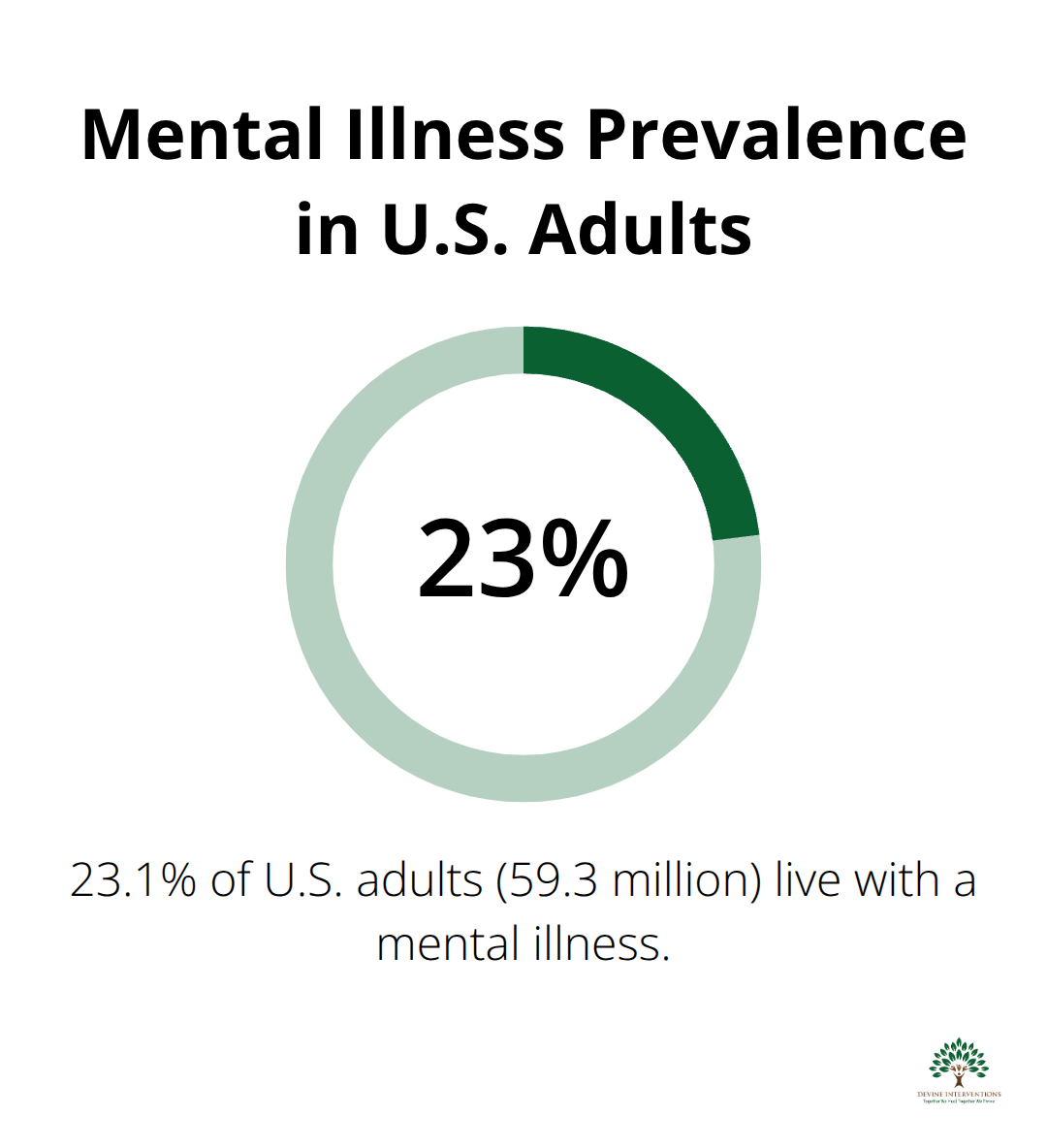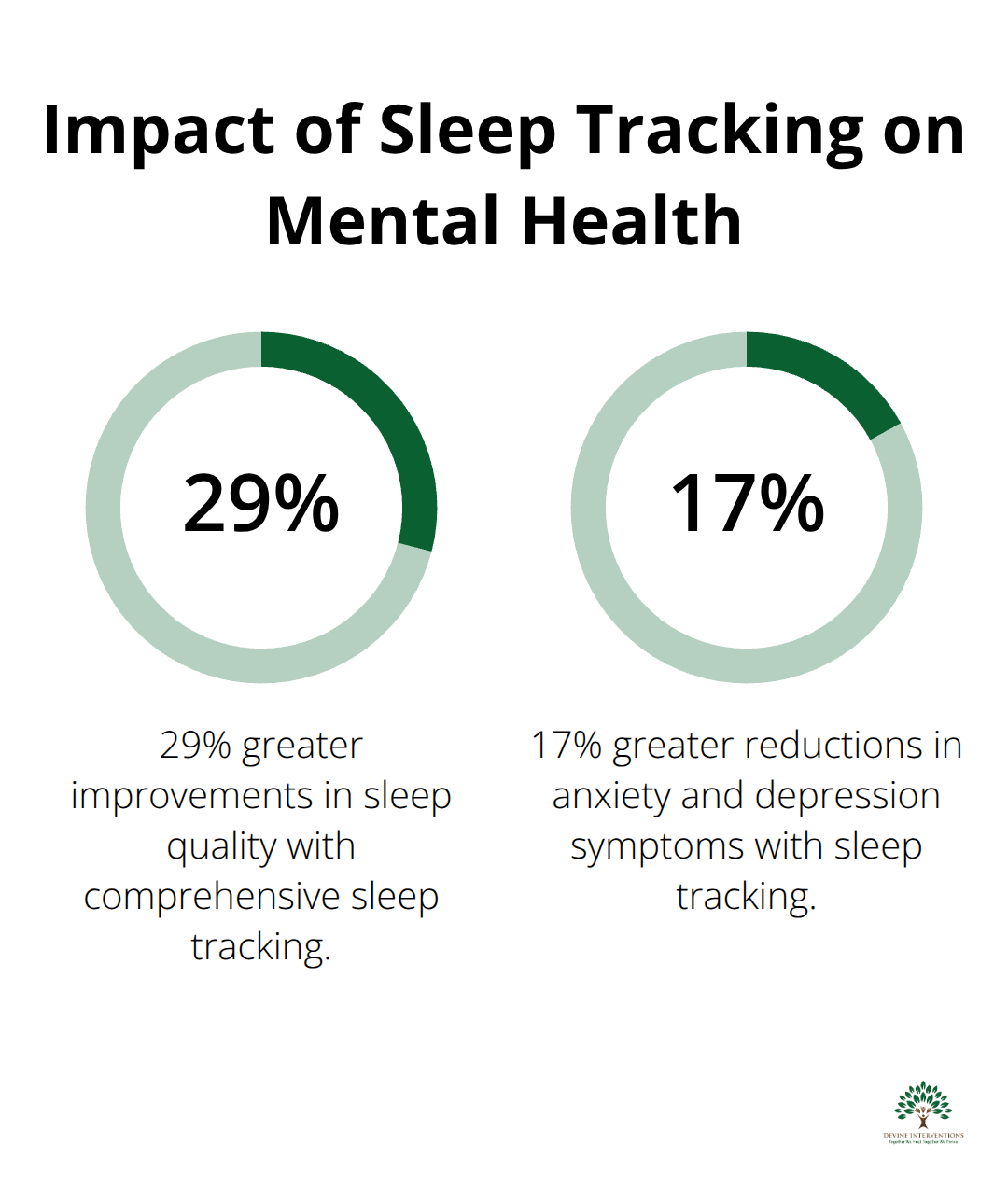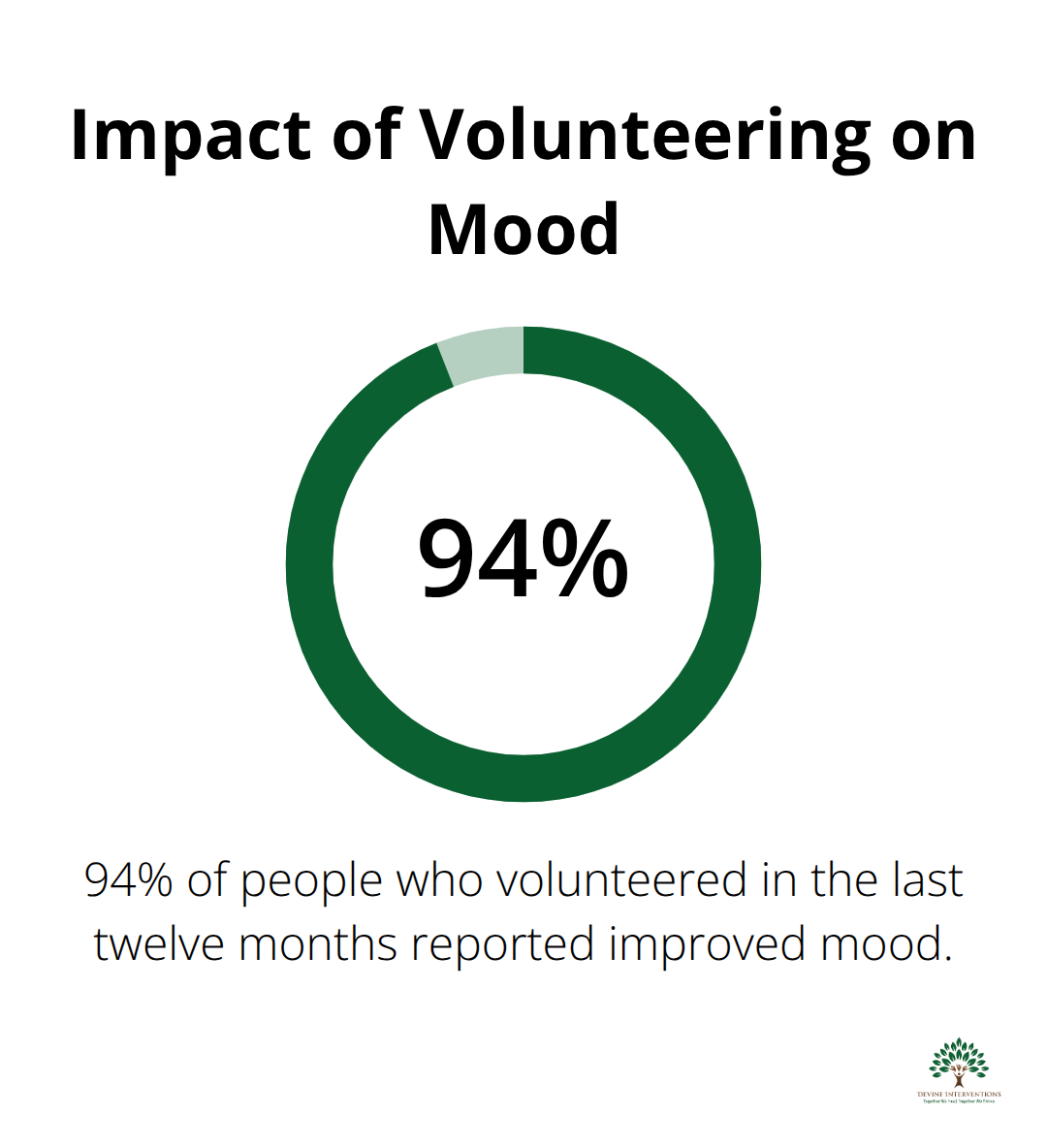At Devine Interventions, we’re excited to kick off Mental Wellness Month in January 2025. This annual observance shines a spotlight on the importance of mental health in our lives.
We’ve prepared a guide to help you make the most of this month, focusing on practical steps to boost your mental well-being. From personal habits to community involvement, there’s something for everyone to try.
Why Mental Wellness Matters
The Origins of Mental Wellness Month
Mental Health Awareness Month was established in 1949 to increase awareness of the importance of mental health and wellness in Americans’ lives. It has now grown into a nationwide observance, championed by organizations like Mental Health America and the National Alliance on Mental Illness.
The State of Mental Health in America
The numbers paint a stark picture. More than one in five U.S. adults live with a mental illness (59.3 million in 2022; 23.1% of the U.S. adult population). The Centers for Disease Control and Prevention notes that depression rates have tripled since the start of the COVID-19 pandemic. Anxiety disorders affect 40 million adults in the United States, making it the most common mental illness.
But there’s hope. Studies show that early intervention and consistent mental health practices can significantly improve outcomes. That’s why Mental Wellness Month is so important – it’s our chance to start the year right and build habits that last.

Mental Wellness: The Foundation of Overall Health
Mental wellness isn’t just about avoiding illness. It’s about thriving in all areas of life. The World Health Organization emphasizes that there’s no health without mental health. Good mental health links to better physical health, stronger relationships, and increased productivity at work.
We see the transformative power of mental wellness every day. People who prioritize their mental health often report improved sleep, reduced stress, and a greater sense of purpose. They’re better equipped to handle life’s challenges and pursue their goals.
Taking Action This Mental Wellness Month
This January, we challenge you to take concrete steps towards better mental health. You can start therapy, practice daily mindfulness, or reach out to a support group (every action counts). Your mental wellness journey starts now.
As we move into practical tips for improving mental wellness, it’s important to remember that small, consistent actions can lead to significant changes. Let’s explore some effective strategies you can implement in your daily life.
Practical Steps to Boost Your Mental Wellness
Mental wellness isn’t a destination; it’s a journey. Small, consistent actions can lead to significant improvements in mental health. Here are some practical steps you can take to boost your mental wellness this January and beyond.
Start Your Day with Mindfulness
Begin each morning with a five-minute mindfulness exercise. Set your alarm five minutes earlier and spend that time focusing on your breath. Apps like Headspace or Calm can guide you through short meditations. Many people report feeling more centered and less reactive throughout the day after adopting this habit.
Prioritize Sleep Hygiene
Quality sleep is essential for mental health. Try to get 7-9 hours of sleep per night. Create a bedtime routine: turn off screens an hour before bed, keep your bedroom cool and dark, and read or do gentle stretching to wind down. Studies show that individuals using comprehensive sleep tracking systems experienced 29% greater improvements in sleep quality and 17% greater reductions in anxiety and depression symptoms.

Practice Daily Gratitude
Take two minutes each evening to write down three things you’re grateful for. This simple practice can rewire your brain to focus on the positive. A study from the University of California, Davis found that people who practiced gratitude consistently reported a 10% increase in overall life satisfaction.
Move Your Body
Physical exercise is a powerful mood booster. Try to do 30 minutes of moderate exercise five days a week. This could be a brisk walk, a bike ride, or a dance class. Research suggests that exercise can be as effective as antidepressant medications for some individuals, particularly when combined with other treatments.
Implement a Digital Detox
Excessive social media use links to increased anxiety and depression. Set boundaries around your screen time. Use apps like Freedom or Forest to block distracting sites during work hours. Designate phone-free zones in your home (like the dinner table or bedroom). A study from the University of Pennsylvania found that limiting social media use to 30 minutes a day led to significant reductions in loneliness and depression.
Improving your mental wellness takes time and effort, but the benefits are immeasurable. If you find yourself struggling to implement these changes or need additional support, don’t hesitate to reach out to a mental health professional. At Devine Interventions, we offer personalized strategies and support for your mental health journey. Our team is ready to help you take the next step towards better mental wellness.
As we move forward, let’s explore how community and social activities can further enhance your mental wellness journey.
Community Engagement: A Powerful Tool for Mental Wellness
Mental wellness thrives on connection. This January, we encourage you to step out of your comfort zone and engage with your community. Here’s how you can make a real difference in your mental health and the well-being of those around you.
Support Groups: Find Your Tribe
Support groups offer a powerful way to connect with others who understand your experiences. According to the National Alliance on Mental Illness (NAMI), group settings allow participants to meet others facing similar challenges, reducing feelings of isolation. Look for local groups in your area or consider starting one. Many mental health professionals can guide you in finding or establishing support groups that align with your specific needs.
Volunteer: Give Back, Feel Better
Volunteering not only helps others but also boosts your own mental health. A study by UnitedHealth Group found that 94% of people who volunteered in the last twelve months said it improved their mood. Local mental health organizations often need help with events, fundraising, or administrative tasks. Reach out to organizations in your area to find opportunities that match your skills and interests.

Learn and Grow: Attend Workshops and Seminars
Knowledge empowers you when it comes to mental health. Local libraries, community centers, and mental health facilities often host workshops on topics like stress management, mindfulness, and emotional resilience. These events can provide practical tools and connect you with others interested in mental wellness. Keep an eye out for announcements or ask your healthcare provider about upcoming events.
Organize a Mental Health Awareness Event
Take the initiative to organize a mental health awareness event in your community. This could be a small gathering in a local park, a virtual panel discussion, or a fundraising walk. Engaging your community in mental health discussions helps reduce stigma and creates a supportive environment for everyone.
Open Conversations: Reach Out to Friends and Family
Start conversations about mental health with your friends and family. Share your experiences, listen to theirs, and create a safe space for open dialogue. These conversations can strengthen your relationships and provide mutual support. Try to set aside dedicated time for these discussions, free from distractions.
Final Thoughts
Mental Wellness Month January 2025 offers a fresh start for your mental health journey. We encourage you to embrace the practices we’ve discussed and make them part of your daily routine. These tools can help you build resilience and improve your overall well-being throughout the year.
At Devine Interventions, we stand ready to support you on this path. Our team provides personalized care for lasting recovery, including therapy services and specialized treatment programs. We focus on treating the whole person, not just symptoms.
Your mental health deserves attention every day, not just in January. Take action today: reach out to a friend, join a support group, or contact a mental health professional. Let’s make 2025 the year we prioritize mental wellness in every aspect of our lives.







